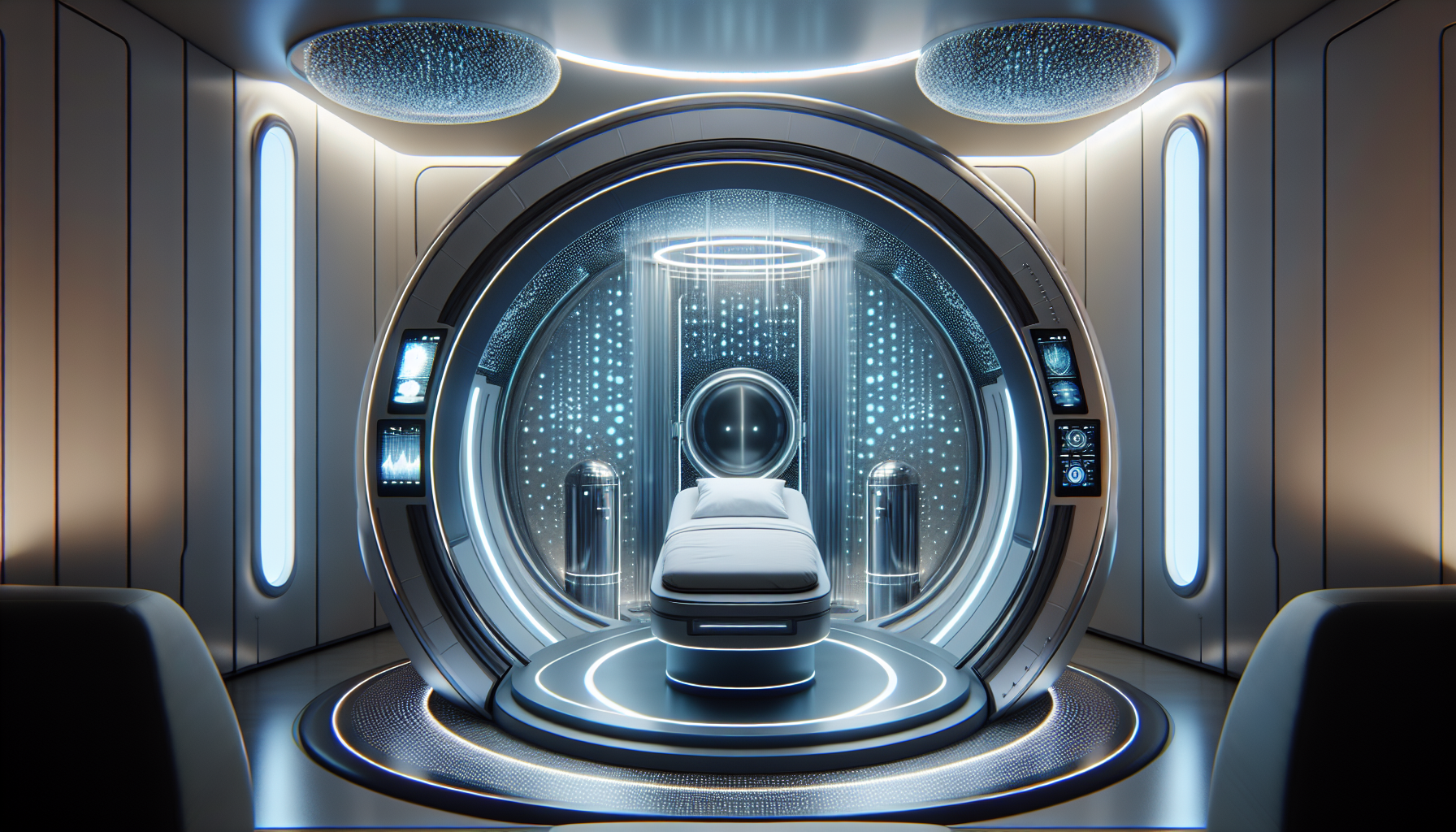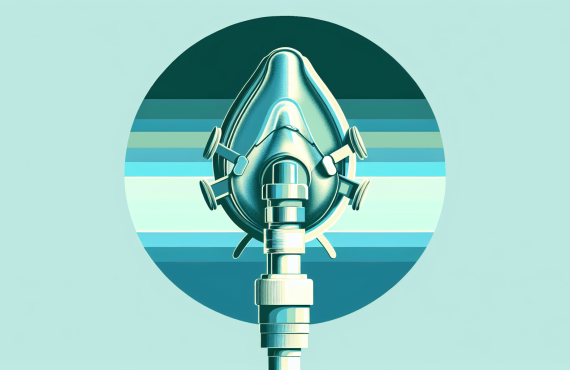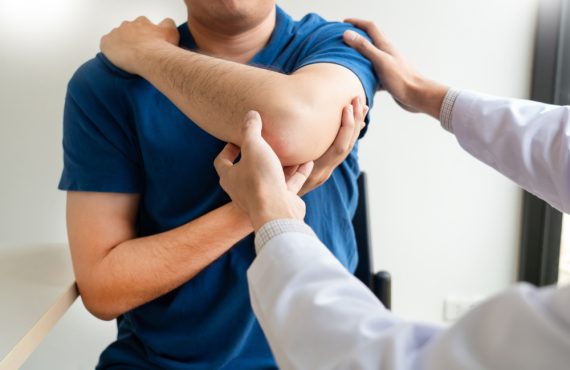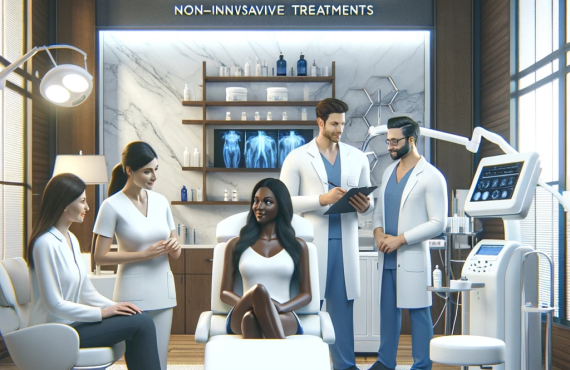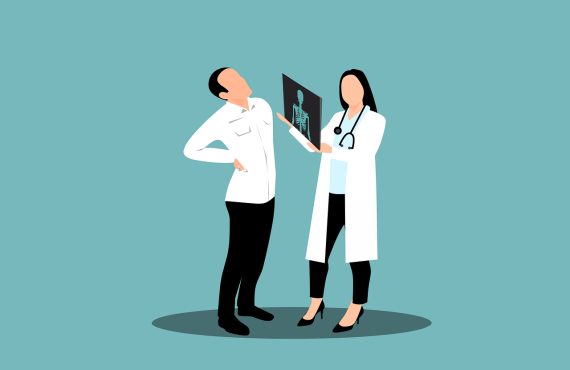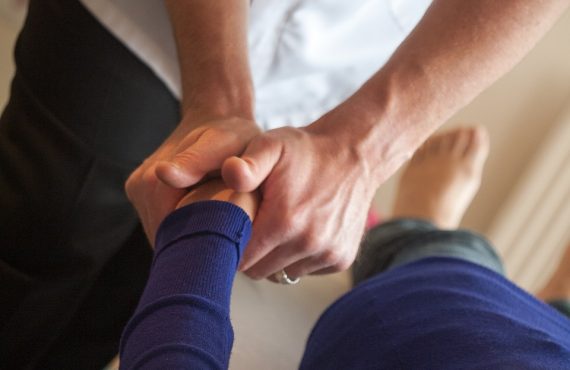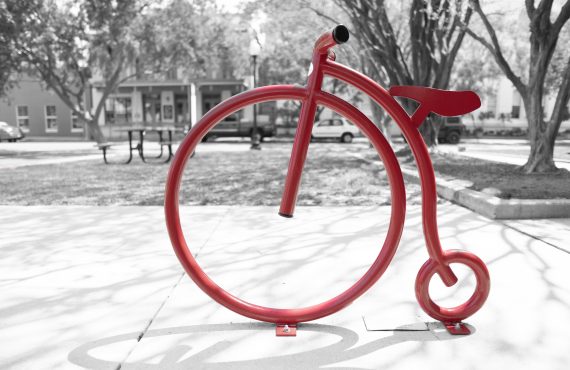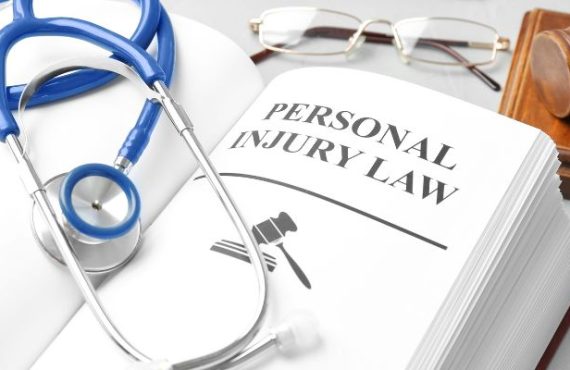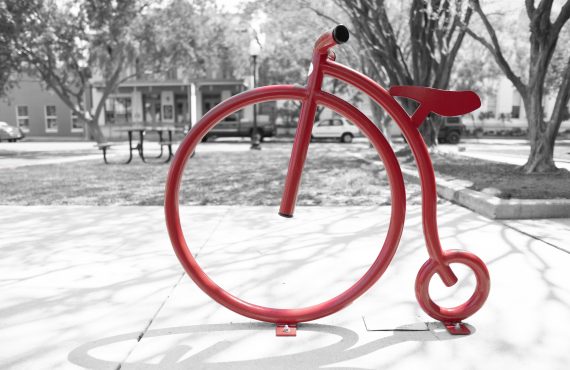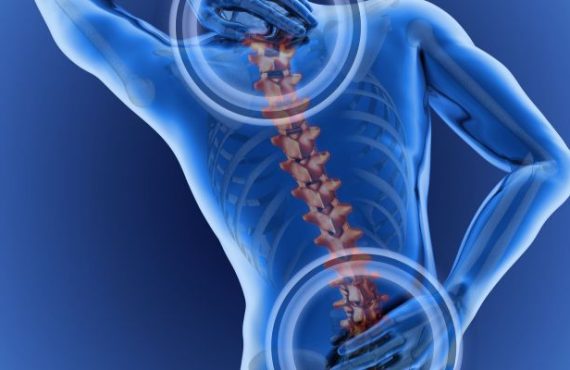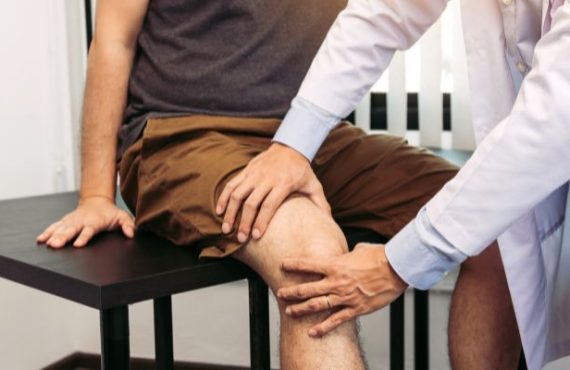Are you searching for ways to maximize your personal injury recovery in Pensacola? Look no further! In this article, we will provide you with valuable tips and strategies to ensure you receive the compensation you deserve. Whether you have been involved in a car accident, slip and fall, or any other type of personal injury incident, we’ve got you covered. From understanding the legal process to gathering evidence and negotiating with insurance companies, we will empower you with the knowledge and tools needed to navigate your personal injury case successfully. So, let’s get started on your journey to maximizing your personal injury recovery in beautiful Pensacola!

Table of Contents
Understanding Personal Injury Cases
What is a personal injury case?
A personal injury case refers to a legal dispute that arises when an individual suffers physical or psychological harm as a result of someone else’s negligence or intentional actions. In such cases, the injured party, also known as the plaintiff, seeks compensation for their injuries and damages.
Types of personal injury cases
Personal injury cases can take various forms, depending on the circumstances surrounding the incident. Some common types of personal injury cases include:
- Car accidents: When a person is injured in a motor vehicle collision due to someone else’s negligence.
- Slip and fall accidents: These occur when an individual gets injured on someone else’s property, such as a store or a residence, due to hazardous conditions.
- Medical malpractice: When a healthcare professional fails to deliver a standard level of care, resulting in harm or injury to the patient.
- Product liability: Injuries caused by defective or dangerous products, such as faulty machinery or contaminated food.
- Workplace accidents: When an employee suffers an injury in the workplace due to unsafe conditions or employer negligence.
- Dog bites: If someone’s pet causes injury to another person, the owner may be held liable for the damages.
It’s important to note that personal injury cases can encompass a wide range of situations. Seeking legal advice from a personal injury attorney specializing in the relevant area can provide valuable guidance tailored to your specific case.
Statute of limitations for personal injury cases
When considering a personal injury case, it’s crucial to be aware of the statute of limitations. This refers to the time limit within which a plaintiff must file their claim. In Pensacola, Florida, the statute of limitations for most personal injury cases is four years from the date of the incident. However, there are exceptions and shorter time limits for specific cases, such as medical malpractice.
To ensure that you do not miss the deadline for filing your personal injury claim, it’s best to consult with an experienced attorney as soon as possible. They can assess the unique circumstances of your case and guide you through the process while ensuring compliance with all legal timelines.
Finding the Right Attorney
Importance of hiring a personal injury attorney
When facing a personal injury case, it is highly recommended to hire a reputable personal injury attorney to represent you. Navigating the legal complexities of a personal injury case on your own can be overwhelming, and having an experienced attorney by your side can significantly increase your chances of a successful outcome.
A personal injury attorney possesses the knowledge and expertise to handle all aspects of your case, from gathering evidence to negotiating with insurance companies and representing you in court if necessary. They understand the intricacies of personal injury law, local regulations, and the legal system in Pensacola. Their main objective is to protect your rights and fight for the compensation you deserve.
Qualities to look for in a personal injury attorney
When searching for a personal injury attorney in Pensacola, there are certain qualities you should prioritize:
-
Experience: Look for an attorney with a proven track record in handling personal injury cases similar to yours. Experience equips them with the necessary skills and understanding to handle various challenges that may arise during the legal process.
-
Reputation: Research the attorney’s reputation through client reviews, testimonials, and their standing in professional organizations. A reputable attorney is more likely to have a positive impact on your case.
-
Communication skills: Effective communication is crucial in any legal matter. You should feel comfortable discussing your case with the attorney, and they should be able to explain complex legal concepts in a way that you can understand.
-
Resourcefulness and network: An attorney with a strong network of experts, investigators, and specialists can provide valuable resources to strengthen your case. This includes access to medical professionals who can provide expert opinions on your injuries.
Researching personal injury attorneys in Pensacola
To find a personal injury attorney in Pensacola who meets your requirements, start by seeking recommendations from friends, family, or colleagues who may have gone through a similar experience. Additionally, you can conduct online research to identify attorneys specializing in personal injury law in the Pensacola area.
Take the time to review their websites, read client testimonials, and assess their experience and credentials. Schedule consultations with a few attorneys to discuss your case and evaluate their approach and compatibility with your needs. Remember, finding the right attorney is crucial to the success of your personal injury case, so don’t rush the decision-making process.
Gathering Evidence
Importance of gathering evidence
In a personal injury case, evidence plays a pivotal role in proving your claim and establishing fault or negligence on the part of the defendant. Collecting and preserving evidence from the scene of the incident is crucial to building a strong case.
Evidence helps create a clear picture of what happened and supports your version of events. Without sufficient evidence, it becomes challenging to prove liability and seek fair compensation for your injuries and damages.
Types of evidence to collect
When gathering evidence for a personal injury case, consider the following types of evidence that can be valuable in strengthening your claim:
-
Photographs and videos: Take pictures or videos of the accident scene, including any hazardous conditions, injuries sustained, or property damage. Visual evidence can significantly impact the jury’s understanding of the incident.
-
Witness statements: Seek contact information from witnesses who were present at the scene. Their statements can serve as powerful evidence, providing an objective account of what transpired.
-
Police reports: If law enforcement responded to the incident, obtain a copy of the police report. This document can provide important details, such as the officer’s observations, statements made at the scene, and any citations or charges issued.
-
Medical records and bills: Request copies of all medical records relating to your injuries, including diagnoses, treatment plans, and bills. These documents validate the severity of your injuries and the medical expenses incurred.
-
Employment records: If your injuries impact your ability to work, gather employment records, including pay stubs and documentation of missed workdays or reduced earning capacity. This evidence helps quantify potential damages related to lost wages.
Working with investigators and experts
In some personal injury cases, working with investigators and experts can significantly strengthen your case. Attorneys may collaborate with accident reconstruction specialists, medical experts, or forensic analysts to gather additional evidence and provide expert opinions.
These professionals can help recreate the accident or assess the extent of your injuries, providing comprehensive reports that lend credibility to your claims. Their expertise can establish causation, link your injuries to the incident, or challenge the opposing party’s arguments.
Your personal injury attorney will be instrumental in identifying the need for such experts and coordinating their involvement in your case.
Medical Treatment and Documentation
Seeking appropriate medical treatment
After sustaining an injury, it is crucial to seek prompt and appropriate medical treatment. Even if your injuries appear minor at first, it’s essential to consult a healthcare professional who can assess the severity of the injuries and provide the necessary care.
Prompt medical attention not only promotes your well-being but also establishes a clear link between the incident and your injuries. Insurance companies and opposing parties often try to minimize the seriousness of your injuries, claiming that they are unrelated or exaggerations.
Importance of documenting injuries and medical records
documenting your injuries and medical records is key to the success of your personal injury case. This documentation helps establish the extent of your injuries, the treatment received, and the associated medical expenses. Here are a few tips for effective documentation:
-
Keep records of all medical appointments: Maintain a detailed record of all medical visits, including dates, healthcare providers seen, and treatment received. This record serves as evidence of your commitment to seeking appropriate medical care.
-
Preserve medical bills and receipts: Keep copies of all medical bills, invoices, and receipts for treatments, prescription medications, rehabilitation sessions, or any other related expenses. These documents help calculate the economic damages you have incurred.
-
Record your symptoms and limitations: Keep a personal journal or diary to document the physical or emotional pain you experience as a result of the injury. Note how the injury affects your daily life, including activities you can no longer participate in or adjustments you have had to make.
Obtaining expert medical opinions
In some personal injury cases, obtaining expert medical opinions can be crucial. Medical experts can provide professional assessments regarding the cause, extent, and long-term effects of your injuries.
Expert opinions can be particularly significant when dealing with complex injuries, medical malpractice cases, or long-term disabilities. These opinions carry weight in negotiations, trial proceedings, or when responding to the opposing party’s arguments.
Your personal injury attorney can assist in finding the right medical experts to evaluate your injuries and provide expert opinions tailored to strengthen your case.

Negotiating with Insurance Companies
Understanding insurance policies and coverage
Before engaging in negotiations with insurance companies, it’s important to have a comprehensive understanding of insurance policies and coverage. This knowledge enables you to advocate for your rights effectively and navigate through the claims process.
Familiarize yourself with the different types of insurance policies involved, such as auto insurance, homeowner’s insurance, or general liability insurance. Understanding the coverage limits, exclusions, and policy language can help you make informed decisions during negotiations.
Dealing with insurance adjusters
During the negotiation process, you are likely to interact with insurance adjusters representing the opposing party’s insurance company. These adjusters are responsible for assessing the claim and recommending a settlement amount.
When dealing with insurance adjusters, it’s important to remember that their primary objective is to protect the interests of the insurance company, which often involves minimizing payouts or denying claims. Here are a few tips for successfully navigating conversations with insurance adjusters:
-
Be cautious with recorded statements: Insurance adjusters may request recorded statements from you. While it is essential to cooperate, it’s advisable to consult your attorney before providing any recorded statements. Adjusters may use these statements against you later in the claims process.
-
Refrain from accepting early settlement offers: Insurance adjusters often make initial low-ball settlement offers to resolve the claim quickly. It is crucial to consult with your attorney and understand the full extent of your damages before accepting any settlement.
-
Document all correspondence: Keep a record of all conversations, emails, letters, or other forms of communication with insurance adjusters. This documentation helps maintain a clear record of the negotiation process and can be invaluable in case of any disputes.
Tips for successful negotiations
When negotiating with insurance companies, consider the following tips to increase your chances of a successful outcome:
-
Know your worth: Understand the full value of your claim by assessing both economic and non-economic damages. This includes medical expenses, lost wages, pain and suffering, emotional distress, and any future damages related to the injury.
-
Be patient and persistent: Negotiations can be a lengthy process. Remain patient and persistent, advocating for your rights throughout. Remember, insurance adjusters may use delay tactics to test your resolve, so stay committed to securing fair compensation.
-
Have your attorney present: It is beneficial to have your personal injury attorney present during negotiations. They possess the negotiation skills necessary to navigate challenging discussions and can protect your interests, ensuring the settlement offer aligns with the true value of your claim.
Filing a Lawsuit
When to consider filing a lawsuit
In some personal injury cases, filing a lawsuit may become necessary when negotiation efforts with insurance companies fail to yield a satisfactory outcome. Filing a lawsuit should be a strategic decision made in consultation with your personal injury attorney.
Consider filing a lawsuit when:
-
Liability is contested: If there is a dispute over liability or the opposing party refuses to accept responsibility for the incident, filing a lawsuit may be necessary to allow a judge or jury to determine fault.
-
Settlement offers are insufficient: If the insurance company’s settlement offers do not adequately compensate you for your injuries, damages, and losses, a lawsuit may be necessary to pursue a fair resolution.
-
Statute of limitations is approaching: If the statute of limitations deadline is looming, it may be necessary to file a lawsuit to preserve your right to seek compensation. Missing the deadline can result in the forfeiture of your claim.
The process of filing a lawsuit
Filing a personal injury lawsuit involves several crucial steps:
-
Drafting the complaint: Your attorney will draft a legal document, known as the complaint, which outlines your grievances, the defendant’s alleged negligence, and the compensation you are seeking. The complaint is then filed with the appropriate court.
-
Serving the defendant: The defendant must be served with a copy of the complaint and a summons, notifying them of the lawsuit and their legal obligations to respond.
-
Discovery process: Both parties engage in the discovery process, where they exchange information, evidence, and witness statements. This process allows each side to gather information and build their case.
-
Settlement negotiations: Even after filing a lawsuit, settlement negotiations may continue between the parties. It’s important to remain open to settlement discussions while preparing for trial.
-
Trial preparation: If a settlement cannot be reached, your attorney will develop a trial strategy, gather evidence, identify witnesses, and prepare you for testifying in court.
Understanding the court system in Pensacola
Understanding the court system in Pensacola is essential when you file a personal injury lawsuit. Personal injury cases in Pensacola generally fall under the jurisdiction of the Florida Circuit Court – Escambia County.
Navigating the court system can be complex, especially if you are unfamiliar with legal procedures. That’s why having an experienced personal injury attorney who understands the local court system is invaluable. They can guide you through each step of the litigation process and ensure that your case is presented effectively.

Presenting Your Case
Preparing for trial
If your personal injury case proceeds to trial, adequate preparation is crucial. Your personal injury attorney will help you prepare for trial by:
-
Reviewing evidence: Carefully reviewing all evidence gathered, including medical records, witness statements, expert opinions, and any other relevant documentation.
-
Developing a trial strategy: Collaborating with you to develop a trial strategy that emphasizes the strengths of your case and addresses potential weaknesses.
-
Preparing witnesses: Working with witnesses, such as medical professionals or accident reconstruction experts, to ensure they are ready to testify effectively and support your case.
-
Preparing you for testimony: Conducting mock examinations and providing guidance on answering questions confidently and accurately.
Importance of compelling evidence and witnesses
Presenting compelling evidence and witnesses is key to persuading the judge or jury that you deserve compensation for your injuries and damages.
Compelling evidence may include:
-
Photographs and videos: Visual evidence can help recreate the incident or demonstrate the extent of your injuries.
-
Medical records: Detailed medical records provide tangible proof of the injuries you sustained and their impact on your life.
-
Expert witness testimony: Experts in relevant fields can provide professional opinions that help establish causation, link your injuries to the incident, or challenge the opposing party’s arguments.
Working with expert witnesses
In many personal injury cases, expert witnesses can provide invaluable support by offering specialized knowledge and professional opinions. Working with expert witnesses can strengthen your case by providing credible testimony and perspectives beyond the scope of a layperson.
These experts may include accident reconstruction specialists, medical professionals, vocational rehabilitation experts, or economists. They can help analyze complex issues, gather and interpret data, and provide scientific evidence that supports your claims.
Your personal injury attorney will identify the need for expert witnesses in your particular case and coordinate their involvement. Expert witnesses bring an added layer of credibility and expertise that can significantly impact the outcome of your trial.
Calculating Damages
Types of damages in a personal injury case
When pursuing a personal injury case, there are various types of damages to consider. Damages may be divided into two broad categories:
-
Economic damages: These quantify the monetary losses incurred due to the injury, including medical expenses, property damage, lost wages, and reduced earning capacity.
-
Non-economic damages: These compensate for the non-monetary losses that are more challenging to quantify, such as pain and suffering, emotional distress, loss of enjoyment of life, and loss of consortium.
The specific types and amounts of damages you are entitled to will depend on the circumstances of your case, the severity of your injuries, and the impact on your life.
Factors that affect the value of a claim
Several factors can influence the value of your personal injury claim, including:
-
Severity of injuries: The more severe your injuries are, the higher the potential value of your claim. This includes the need for past and future medical treatments, potential long-term disabilities, and ongoing pain and suffering.
-
Impact on daily life: Consider how the injuries have affected your ability to perform daily activities, participate in hobbies or sports, or maintain relationships. The impact on your quality of life can increase the value of your claim.
-
Liability and negligence: Proving the other party’s negligence and liability plays a critical role in determining the value of your claim. Clear evidence of their responsibility can significantly augment your potential compensation.
-
Insurance coverage: The insurance policy of the responsible party plays a role in determining the maximum amount of compensation available. Understanding the policy limits and coverage is essential in accurately assessing the potential value of your claim.
Determining economic and non-economic damages
Determining the dollar value of both economic and non-economic damages can be complex. Economic damages can often be calculated by reviewing medical bills, repair estimates, or lost wage statements.
Assessing non-economic damages, on the other hand, requires a more subjective evaluation. Factors such as the severity of pain, emotional distress, and the impact on your quality of life will be considered. Juries often rely on the guidance of expert witnesses and the attorney’s persuasive arguments to assign a value to non-economic damages.
Your personal injury attorney will analyze all relevant factors, consult with experts and specialists, and make a comprehensive assessment of the damages you have suffered. This evaluation will guide negotiations or trial proceedings to seek fair and just compensation.
Settlement Negotiations
When to consider a settlement
Settlements can provide a resolution to your personal injury case without the need for a trial. Considering a settlement depends on various factors, such as:
-
Strength of your case: Evaluate the strength of your evidence, the credibility of witnesses, and the likelihood of success at trial. If the evidence in your favor is strong, a settlement may not be necessary, as a favorable outcome in court may be plausible.
-
Time and cost: Litigating a personal injury case can be time-consuming and costly. If a fair settlement offer is presented early in the process, it may be worth considering to save time, effort, and expenses associated with trial.
-
Legal advice: Consult with your personal injury attorney about the pros and cons of accepting a settlement offer. They can provide an objective assessment based on their experience with similar cases and knowledge of local jury verdicts.
Negotiating a fair settlement amount
Negotiating a fair settlement amount requires careful consideration and strategic decision-making. Your personal injury attorney will be integral in guiding these negotiations and advocating for your best interests.
During settlement negotiations, key factors to consider include:
-
The strength of your case: Emphasize the strength of your evidence and the credibility of expert witnesses to assert your position confidently.
-
Extent of damages: Clearly articulate the economic and non-economic damages you have suffered, supported by documentation and expert opinions. This comprehensive understanding helps justify the settlement amount you seek.
-
Demonstrating risks: Highlight potential risks and uncertainties associated with taking the case to trial. Discuss the possible outcomes and the costs and delays associated with continued litigation.
-
Comparing prior settlements: Research previous settlement amounts for similar cases in Pensacola to gain an understanding of what juries and insurance companies have deemed appropriate compensation. This benchmark provides context for settlement discussions.
Avoiding common settlement pitfalls
When negotiating a settlement, be wary of common pitfalls that may negatively impact your case:
-
Accepting low initial offers: Insurance companies may make low initial settlement offers hoping that you’ll accept without fully considering the value of your claim. Consult with your attorney before accepting any settlement offers.
-
Rushing negotiations or settlements: Act with patience and do not rush into accepting a settlement. Take the time to carefully evaluate all aspects of your case with the guidance of your attorney.
-
Settling without a full understanding of damages: Ensure you have a comprehensive understanding of both economic and non-economic damages before engaging in settlement negotiations. This preparation avoids undervaluing your claim.
-
Failing to seek legal advice: It’s crucial to consult with a personal injury attorney before pursuing or accepting a settlement. They will use their expertise to navigate negotiations, protect your rights, and ensure you receive fair compensation.
By remaining vigilant and relying on the guidance of your attorney, you can avoid these pitfalls and negotiate a settlement that accurately reflects the value of your personal injury case.
Appealing a Decision
When to consider appealing
In some instances, appealing a decision becomes necessary when the outcome of your personal injury case is not favorable. Appealing should be considered when:
-
Errors in law or procedure occurred: If there were significant legal or procedural errors during the trial that may have impacted the outcome, grounds for appeal may exist.
-
Insufficient compensation: If the compensation awarded does not adequately address your injuries, damages, or losses, an appeal may be necessary to seek a more favorable resolution.
-
Misinterpretation of evidence: If there is evidence that was misinterpreted or improperly presented during the trial, appealing can provide an opportunity to correct these errors.
Process of filing an appeal
Filing an appeal involves strict timelines and adherence to specific procedures. Here is a general outline of the appeal process:
-
Notice of appeal: You must file a notice of appeal within the designated timeframe, typically within 30 days after the court’s final judgment. Failure to file within this timeframe may result in the forfeiture of your right to appeal.
-
Record on appeal: The appellant, or party filing the appeal, must request a copy of the trial court record, which includes all documentation, exhibits, and transcripts from the original trial.
-
Appellate briefs: Both the appellant and the appellee, or opposing party, may submit written briefs that summarize their arguments and support their positions. Appellate briefs are filed with the court and are critical in presenting your case to the appellate judges.
-
Oral arguments: Appellate courts may schedule oral arguments, allowing both parties to present their case and answer questions posed by the judges. Oral arguments offer an opportunity to further support your arguments and clarify any uncertainties.
-
Appellate court decision: After reviewing the case, the appellate court will render a decision. They may affirm the lower court’s decision, reverse it, or remand the case back to the trial court for further proceedings.
Seeking legal guidance for appeals
Appeals involve complex legal procedures, strict timelines, and nuanced arguments. It is critical to seek legal guidance from an attorney experienced in appellate practice to navigate the process effectively.
An appellate attorney will review the trial record, identify potential grounds for appeal, and develop persuasive arguments. They are well-versed in the intricacies of appellate law and can present your case coherently to maximize your chances of a successful appeal.
Remember, seeking an appeal requires careful consideration and should be discussed with your personal injury attorney to determine if it is a viable option based on the circumstances of your case.
In conclusion, understanding personal injury cases is essential when seeking recovery for your injuries and damages. By finding the right attorney, gathering evidence, documenting injuries, negotiating with insurance companies, considering lawsuits, presenting your case effectively, calculating damages, engaging in settlement negotiations, and properly understanding the appeals process, you can maximize your personal injury recovery in Pensacola. With the support of an experienced personal injury attorney, you can navigate the legal complexities and pursue a fair and just resolution to your case.



